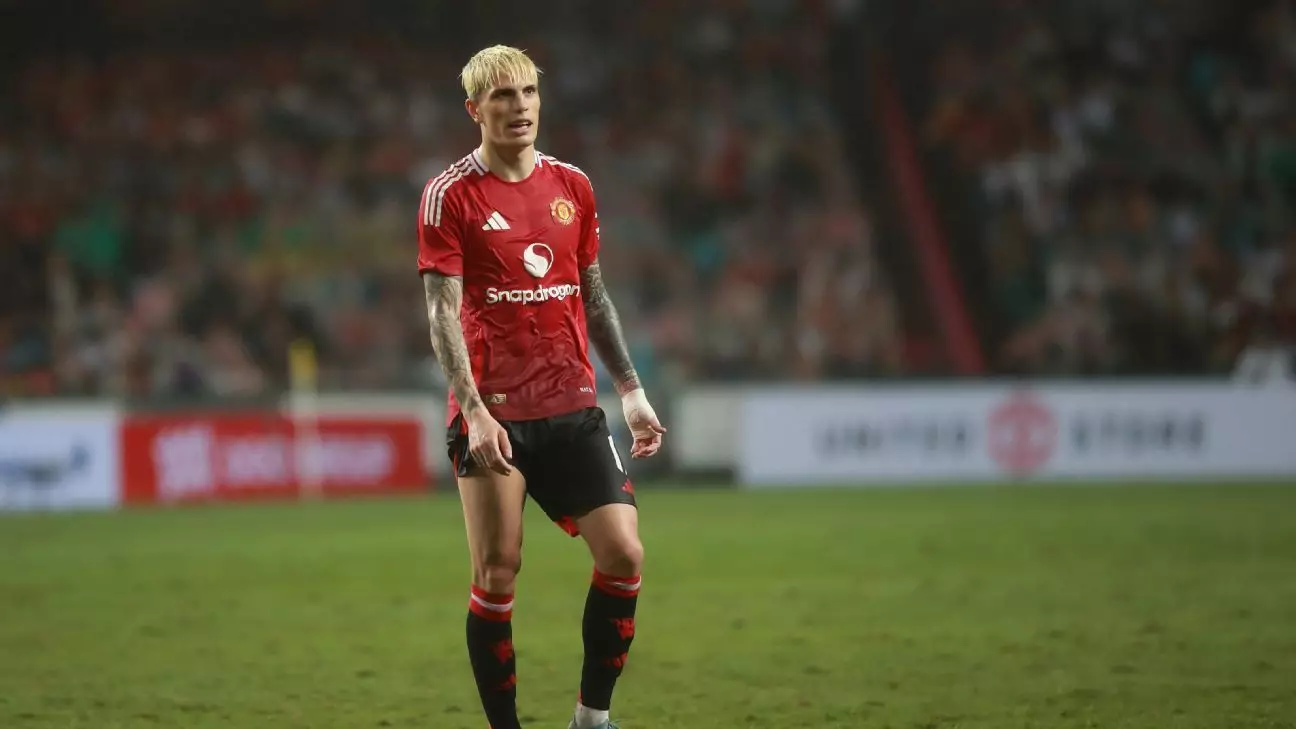In a landscape where football clubs often follow predictable paths, Ruben Amorim’s candid approach to managing the Manchester United squad signals a refreshing departure. Instead of resorting to rigid tactics or empty promises, Amorim openly discusses the fragility and fluidity within the team. His acknowledgment that some players might need to find new homes reflects a pragmatic mindset, rooted not in abandonment, but in strategic realism. This honesty fosters transparency, which is a rare commodity in modern football—players and fans alike crave clarity when their club is navigating change.
Amorim recognizes that the process of reintegration isn’t purely driven by club needs, but also by individual aspirations and market realities. His willingness to keep the door open for players like Garnacho and Malacia, even as they linger in limbo, underscores a belief in the importance of personal agency. It’s a bold stance—one that signals patience, but also preparedness to adapt swiftly should circumstances change. Such resilience, in both the coach’s philosophy and the squad’s mindset, is what could ultimately differentiate Manchester United’s upcoming season from the disappointment of recent years.
Strategic Patience and the Power of Uncertainty
Amorim’s assertions convey a wider philosophy: sometimes, patience can be a competitive advantage. Although the club and its supporters yearn for definitive signings—especially a leading striker—the coach’s acceptance of starting with the current squad demonstrates confidence in collective potential. His candidacy for the squad, despite lingering transfer uncertainty, illustrates a proactive stance: building resilience from within rather than succumbing to external pressures.
The emphasis on players vying for game time amidst transfer battles echoes a broader truth about sports: motivation often flourishes when driven by competition. Amorim’s openness about expanding options, fostered by new signings like Matheus Cunha and Bryan Mbeumo, suggests a strategic effort to deepen squad depth. Critics might argue that this approach risks instability, but in a climate where overreliance on high-profile signings often backfires, this form of internal competition can be the true catalyst for growth.
Balancing Ambition with Realism in Transfer Politics
One of the most compelling aspects of this situation is the acknowledgment of transfer market complexities. Amorim’s remarks highlight the delicate dance clubs must perform: local and international negotiations, timing, and financial considerations all influence decisions. His statement that Manchester United could start the season without a new striker reflects a stoic acceptance of this reality, emphasizing instead the importance of internal motivation and team cohesion.
Furthermore, his focus on player commitment—whether currently at United or contemplating departure—embeds a narrative of resilience and perseverance. The club’s ability to adapt to these shifting sands, rather than panic and overcommit to risky signings, exemplifies a mature strategic outlook. It suggests a belief that resilience is built not solely on signing big names, but on nurturing the existing squad’s potential and flexibility.
A Bold Trust in Internal Development and Future Potential
Amorim’s strategy underscores a belief that growth often comes from within. During a period of transition, the emphasis on developing young players like Rasmus Hojlund and Josh Zirkzee is a clear signal that Manchester United aims to establish a sustainable future rather than chase short-term fixes. By prioritizing internal competition and opportunity, the club fosters a resilient environment conducive to individual and collective improvement.
His reassuring comments about being “happy” if the current squad is deemed sufficient for the season point to a confidence in internal resources. This stance might challenge the traditional notion that success hinges solely on marquee signings, but it also champions the philosophy that resilience stems from unity, adaptability, and perseverance—values that are essential for navigating the unpredictability of football’s transfer market and competitive landscape.
This articulation of resilience as an active, strategic choice—rather than passive endurance—marks a promising shift in Manchester United’s approach. In a sport where setbacks are inevitable, Amorim’s perspective suggests that true strength lies in the willingness to face uncertainty head-on, make tough decisions when necessary, and trust in the collective potential of the team. This mindset, if embraced universally, could redefine how clubs build resilience in pursuit of sustained success.


Leave a Reply